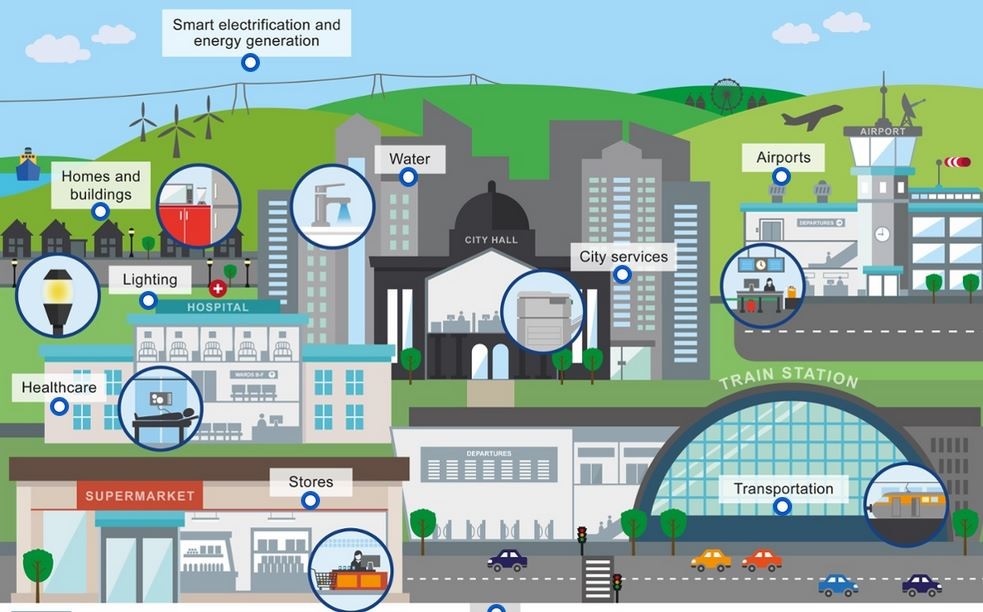Rwanda to celebrate World Standards Day 2017
Rwanda Standards Board will join the world to celebrate this year’s World Standards Day under the national theme: “Standards Contribute in Building a Smart Rwanda with Smart Cities.
This theme was chosen to raise awareness of policy makers, regulators, operators and various standards users on the importance of standards in development and implementation of effective policies, laws and regulations on smart cities and use of standards in building a SMART RWANDA with smart cities.
World Standards Day (WSD) has been celebrated every year by International Standards Organizations; namely the International Organization for Standardization (ISO), International Electrotechnical Commission (IEC) and International Telecommunication Union (ITU) members on 14th October since 1970. Rwanda has joined the rest of the world since 2004. This year’s WD will be celebrated at Lemigo Hotel in Kigali13th October 2017, starting at 14:00. In this regard, prior to the celebration, RSB in collaboration with Stakeholders from Government and private institutions that share a common mandate in smart cities development organized awareness campaigns in Kigali City and six secondary cities of Rwanda to raise awareness on the importance of standards in building smart and sustainable cities. Awareness activities were carried out in the Standards Week starting from 2nd-13th October 2017. This event is very important as it will be celebrated at a time when a lot of initiatives contributing to building SMART RWANDA and smart cities are ongoing such as the development of Smart Rwanda Master Plan (Strategy); e-waste Policy and while National ICT Policy, Rwanda Open Data Policy, ICT Law and Law governing telecommunications are being implemented.
Why Smart Cities?
Rwanda's capital Kigali is the most densely populated with 1,556 people living per square km (population census 2012), almost 4 times that of the entire country. And by 2050 it is predicted that over 61 % of Rwanda's population will be living in cities shifting from 33% in 2017. This has caused great demand on service delivery for citizens and challenged the government to search for smart solutions on how this will be managed with future population growth. Solutions relating to waste management, sufficient supply of fresh water; universal access to cleaner energy, smart grids; urban mobility and intelligent transportation systems, electronic government, a sense of safety and security: these are the kinds of promises Kigali city must fulfill if they are to stay competitive and provide a decent quality of life to its citizens. This is why the Government, as laid out in EDPRS II, is looking at developing secondary cities in order to “off-load” the pressure on Kigali, and as a way to manage the needs of a growing population while still delivering quality service to all Rwandans. It is inevitable for urbanization of the capital and all the six secondary cities to become intelligent to handle this large scale growth. The government and city operators are looking for smarter ways to manage complexities, increase efficiencies and improve quality of life. Today, we need cities that monitor and integrate infrastructure to better optimize resources while maximizing services to its citizens. This is the smart city model.Rwanda has a unique opportunity to set the standards for sustainable urban development that most African countries have fail to do at the moment. How can standards contribute to the success of smart cities? Transforming Rwanda's capital and its secondary cities will require collective efforts and a common will. Standards help to create a common language for evaluation by all stakeholders. It is said that there is no better way of enhancing the life of thousands of millions of people around the world than improving the way in which cities work. How can standards help foster innovation and make people’s life more pleasant?
Standards provide requirements for monitoring technical and functional performance. They ensure that technologies used in cities are safe and efficient. Standards also take into account best practices for business and optimal management of resources, which help to reduce environmental impact and improve service delivery to citizens.
RSB in partnership with stakeholders from public and private organizations has developed many standards at national, regional and international level. These standards can be used for smart cities that will facilitate the work of urban researchers, architects, designers, policy makers, developers, economists and industry leaders the world over, by building standardized city data that will contribute to the success of smart cities. Standards such as sustainability in construction (RS ISO: 15392), smart city indicators (RS ISO: 37120), framework for development of core set indicators (RS ISO: 21929), environmental management systems (RS ISO: 14001), just a few among other standards for urban waste management and environmental protection, smart electric grids, smart fresh water supply and intelligent transportation systems and management.
Standards developed will help achieving smart cities by providing a common platform for coordination and management of activates such as urban infrastructural utilities, service delivery, waste management, affordable housing development and real estate, urban transportation and most of all interaction of city operations with its citizens using internet of things (IoT).
RSB is fully committed to developing standards and delivering other services for metrology, laboratory testing and certification and conformity assessment to help City Authorities set their objectives for Smart Cities and measure progress, create a shared understanding to deliver Rwanda's vision, help city operators on how can information be captured and shared between infrastructure and services and in evaluating risks involved in moving to Smart City services and they can be managed.
